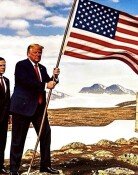[Editorial] Warm Hearts on a Freezing Day
[Editorial] Warm Hearts on a Freezing Day
Posted February. 19, 2009 08:17,
Despite the bitter cold, many people headed for Myongdong Cathedral in Seoul to pay their final respects to the late Cardinal Stephen Kim Sou-hwan. Mourners flooded into the cathedral before it opened at 6 a.m. At daybreak, the line had stretched to Toegye-ro and grew longer to two kilometers, passing the Sejong Hotel and reaching Myeongdong subway station. Many had to wait for more than three hours but stood in the line calmly and politely.
A 30-something woman with her baby on her back said, Ive waited for four hours. But I want to pay my respects to Cardinal Kim. Barriers that have interrupted mutual understanding have been torn down by the peoples high respect for the late clergyman. Singer In Su-ni, a half-Korean, half-black singer, said, Whenever I met him, he told me, Your lifes been great. Even Buddhist monks and Protestant clergy also stood in line. Mourners literally came from across the nation. Ruling and opposition political leaders and former presidents who gave Kim a hard time in the past also dropped by.
Kim won the respect of all Koreans in his illustrious life, and his death is seen as an impetus for all Koreans to unite. Undeniably, Korean society has been checkered by disputes, confrontation and conflict. The country has been divided along political and ideological lines, religion, region and wealth. The cardinals death, however, has awakened Koreans to their hidden desire for unity and love. Such a sense of togetherness has not been felt in Korea since the country co-hosted the 2002 World Cup soccer finals.
Living a life of love and sacrifice, he asked that all of his organs, even his corneas, were to be donated after his death. His noble spirit has brought about change to Korean society. Many people visited a booth in front of Myongdong Cathedral set up by the Korean Organ and Tissue Donor Program in the afternoon. They pledged to donate their organs after death. Blind people braved walking on slippery streets to visit the cathedral.
Back in 1980, Kim told Dong-A Broadcasting System, We could face spring frost, but we can finally bring about democracy if we are determined to do so. After the pro-democracy movement in Gwangju, the military government instituted martial law across the country. Korea, however, finally became a democratic nation as Kim predicted. His saying could be applied not only to politics but also to the economy. The global economic crisis has discouraged many Koreans, but the people can overcome their difficulties if they are determined to do so.





![[이진영 칼럼]잘난 韓, 못난 尹, 이상한 張](https://dimg.donga.com/c/138/175/90/1/wps/NEWS/IMAGE/2026/01/20/133198367.1.jpg)

